Evans Off Camber - Here Be Dragons

Tools for learning or electronic crutches?
Opinions about electronic aids to riding motorcycles are like belly buttons, every rider has one. Cruise to any of the motorcycle forums that my employer owns (there are a bunch of ‘em), and you’re likely to find a thread debating the evils of ABS and/or traction control because they insert themselves between the rider’s input and the motorcycle’s reactions. Just about a year ago, Teakettle editor, John Burns, gave us his take on traction control, summing it up thusly: “I think TC is the greatest moto invention since the rubber tire.”
After my trip to Almeria, Spain last week, I’m inclined to agree, but I want to expand my praise to include the 2015 BMW S1000RR’s implementation of ABS, Dynamic Damping Control (DDC), and, to a lesser extent, HP Gear Shift Assist Pro. These tools not only save a rider’s bacon, but also provide a mental margin of error for the rider to explore the limits of his/her ability while learning from mistakes without the drastic consequences of bruised tissue and broken plastic.
If you’ve read my Metzeler Sportec M7 RR review, you already know that, at the introduction, I was that guy, the one who crashed, so I needn’t go into all the maudlin details. Manufacturers who organize any kind of track riding event in which they are providing the press with motorcycles know what they’re getting in to and are well aware that some of the shiny, new motorcycles for which they are responsible may end up a little worse for the wear. They can be remarkably understanding of mishaps, provided you weren’t doing anything reckless and/or stupid. However, there is a special place in hell reserved for those who have the poor taste to crash twice – not the least of which would be withholding an invitation for your publication to the next event.
These are the weighty thoughts going through a rider’s mind when returning to the track with freshly scuffed leathers and a replacement bike that somebody else owns. We’ve all read about racers at the upper levels of the sport who crash a bike and immediately throw down a faster time on their backup bike. This is one of the ways in which top level racers are different from you and me. As I rolled back out onto the wet track, with rain still falling, my thoughts could be summed up as: “Don’t crash, don’t crash, don’t crash, don’t crash. Oh, and don’t forget to test the tires.” In this hyper-vigilant state, the electronic aids were there, whispering in my ear, “I’ve got your back,” as I circulated the track bringing my breathing and pulse rate down to normal.
Learning requires taking risks and assessing the results – both positive and negative. Having electronics insert themselves into the rider’s inputs to prevent mishaps is a good thing, provided the implementation isn’t handled in a ham-fisted manner. ABS and TC are mature technology, and they are now quite tunable to account for differing levels of rider ability. Their presence on all premium sportbikes illustrates that the manufacturers understand the important role electronics now play in performance riding.
Anyone remember the BMW R1200C? It had ABS – a fact that it announced with loud clanging that sounded like someone was taking a ball-peen hammer to a rusty hinge the first time you pulled away from a stop after starting the engine. You should also know that the histrionics the system engaged in when it was triggered were equally as subtle. Yes, the ABS could save you in a low traction situation, but it also upset the chassis and distracted the rider. We’ve advanced light years beyond those days.
As I circulated the wet pavement of Almeria, knowing that the ABS and traction control increased my margin of error allowed me to get back up to speed and return to the task of testing the Sportec M7 RR tires. Because the consequences of a second get off were so high, I probably wouldn’t have made it up to the threshold of grip under braking if not for the knowledge that the ABS would allow me to gracefully recover should I cross over the line. (An aside: I can’t tell you how many times experienced riders have told me, after buying a bike with ABS, that they were shocked at how much stopping power they discovered they had been leaving on the table prior to having access to ABS and the confidence it gave them to safely push their limits.)
I’ve often found it entertaining to listen to riders rail against the proliferation of rider aids while – at the same time – having quick shifters mounted on their bikes. I guess if it helps to do something faster, it’s ok, but if it is there to compensate for a mistake, it’s interfering with the purity of the ride, making the motorcyclist who takes advantage of this technology a lesser rider. Even with the technological assist, riders with poor technique will always be slower than those with finely honed skills. So, what’s the big deal? Or is it just posturing?
My get off in Spain also outlines that, despite the technological advances in electronics and rubber, motorcycle bodywork still has to cash the checks that riders write – just hopefully on a less frequent basis. How can we expect to improve our skills if every mistake has us cleaning gravel out of our belly pan? Instead, by informing us of our errors while preventing them from biting us in the ass, electronic rider aids have the potential to make us safer, faster riders. All we have to do is listen to their input and learn.

Like most of the best happenings in his life, Evans stumbled into his motojournalism career. While on his way to a planned life in academia, he applied for a job at a motorcycle magazine, thinking he’d get the opportunity to write some freelance articles. Instead, he was offered a full-time job in which he discovered he could actually get paid to ride other people’s motorcycles – and he’s never looked back. Over the 25 years he’s been in the motorcycle industry, Evans has written two books, 101 Sportbike Performance Projects and How to Modify Your Metric Cruiser, and has ridden just about every production motorcycle manufactured. Evans has a deep love of motorcycles and believes they are a force for good in the world.
More by Evans Brasfield



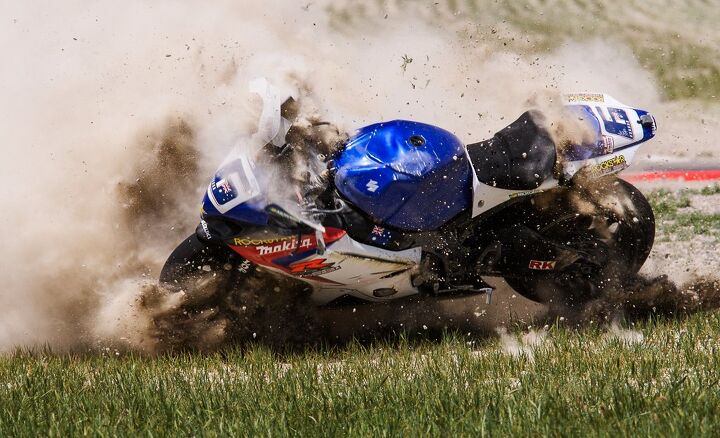
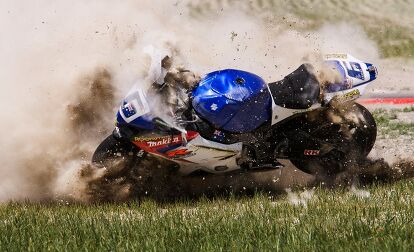





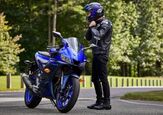
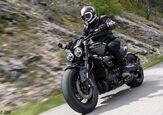
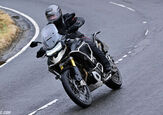
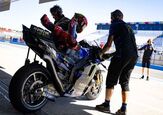

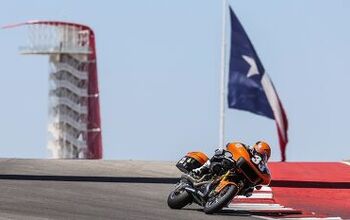
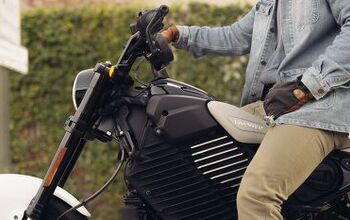
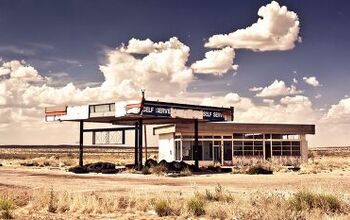

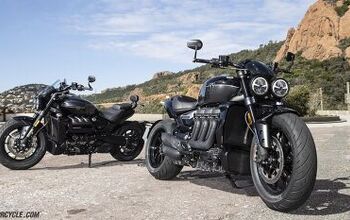
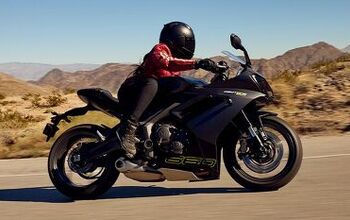

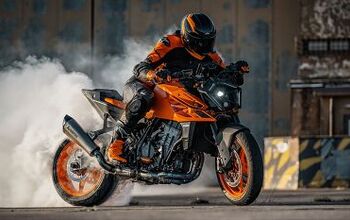
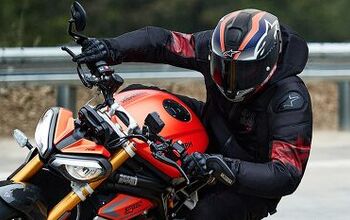

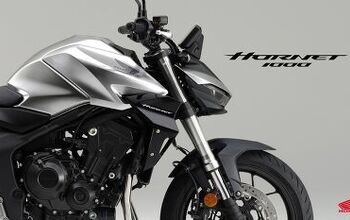
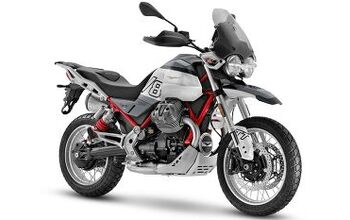

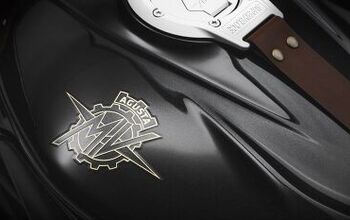
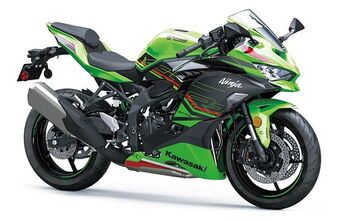
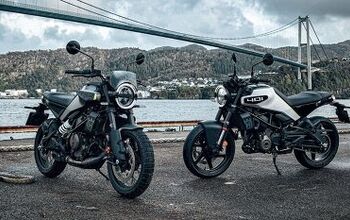
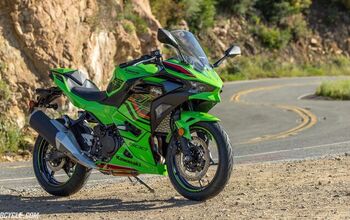

Comments
Join the conversation
Electronics that save you from a crash = good idea.
Electronics that allow you to go faster on public roads -- maybe not so good.
One thing about electronics though, they are one more thing to go wrong and they do fail.
They're good in the sense that they protect riders from themselves and expand the motorcycle market and bad in the sense that they contribute to distracted riding. Seems we always have to take the bad with the good. Maybe that new mc CAN bus will solve that problem.